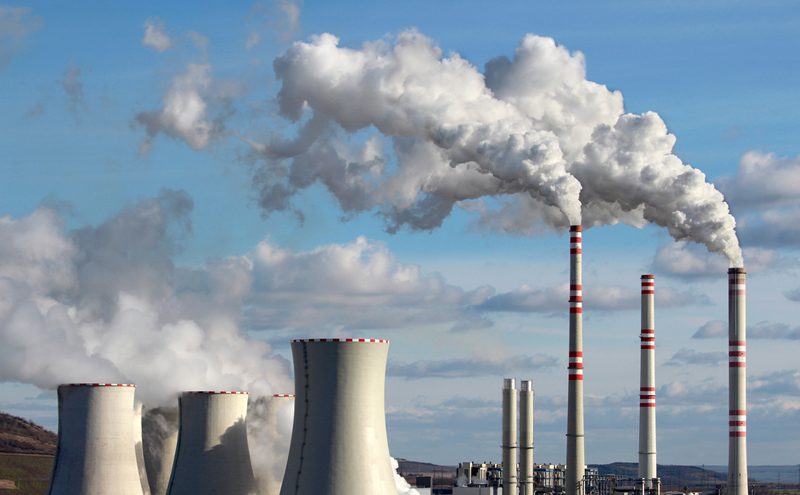
PwC analysis shows UK decarbonising at the fastest rate among G20 countries last year
The UK is strongly outperforming its peers within the G20 according to PwC’s Low Carbon Economy Index (LCEI). The new analysis reveals that in 2016, the UK achieved a decarbonisation rate of 7.7% – almost three times the global average of 2.6% and putting it at the top of the firm’s LCEI table (see below).

Jonathan Grant, Director of Climate Change and LCEI co-author at PwC, commented:
“Our initial LCEI analysis shows the UK hitting impressive decarbonisation rates compared with other major countries. The UK led the world in the industrial revolution and is now leading the low carbon revolution.”
Claire Perry, Minister of State for Climate Change and Industry, said:
“This report confirms the UK is leading the world in the fight against climate change and highlights the results of our efforts to phase out dirty coal power while investing in renewable technologies and energy efficiency.
“The Government recognises there is still work to do. The upcoming Clean Growth Plan will outline our ambitious plan for reducing emissions in key sectors, while taking advantage of opportunities to grow the economy throughout the 2020s.”
Now in its ninth year, the Low Carbon Economy Index tracks G20 countries’ progress in reducing the carbon intensity of their economy– i.e. energy-related greenhouse gas emissions per million dollars of GDP.
Initial results show the UK continued to make progress in 2016 despite uncertainties around Brexit and the implications for the UK’s climate change commitments.
The UK has reduced its energy related emissions in 2016 by 6%, driven largely by a dramatic fall in coal consumption, while maintaining GDP growth of 1.8%.
– Energy demand fell by 1.4% due to continued improvements in energy efficiency in buildings, vehicles and appliances.
– The most important factor accounting for the fall in carbon intensity is the reduction in coal consumption, which halved in 2016. However the shift last year was away from coal and towards natural gas – two thirds of the energy gap was filled by another fossil fuel. Coal now represents just 7% of UK’s energy consumption, down from 23% in 2012.
China, the world’s largest emitter, reduced its carbon intensity by 6.5% and is ranked second in the Index.
Trends this century
According to the LCEI analysts, the UK also leads the G20 in having the highest average decarbonisation rate since 2000. The carbon intensity of the UK has fallen this century by 3.7% a year on average, the highest of the G20 countries. The rate achieved is significantly better than the average reductions needed by countries to meet their national Paris targets (or Nationally Determined Contributions – NDCs).
Other UK highlights include:
– A 13% reduction in total energy consumption during a period where the UK economy grew by over 31%, due to a combination of energy efficiency improvements and a slight structural shift away from heavy industry. Industry’s share of UK GDP fell from 25% in 2000 to 19% today. There has been strong growth in services sectors, which represent around 80% of UK GDP and are low carbon compared to manufacturing and industry.
– Renewable energy has more than tripled since 2000 given substantial investment in wind and biomass.
Jonathan Grant, Director of Climate Change and LCEI co-author at PwC, commented:
“The UK’s success comes down to policies creating a pretty positive investment climate for low carbon technology and the strength of our services sectors. A number of factors have contributed to the low carbon transition in the UK, including cross-party support for tackling climate change, support for energy efficiency in our homes and renewables projects. An EU-wide carbon price along with the UK’s carbon price floor and institutions like the Green Investment Bank have also helped.
“We’re using less coal and investing in more renewable power. However this transition away from coal is now nearly complete. The UK now needs to tackle other parts of the economy – whether it’s increasing renewables or efficiency improvements – in order to maintain its position as a climate leader.
“Despite strong performances in reducing carbon emissions particularly within the electricity sector, the UK continues to rely on oil and gas. Tackling transport emissions and heating and cooling will be the next big challenges.
“There is some promise in the transport sector, with UK’s continued investments in ultra-low emissions and autonomous vehicles, and recent announcements to ban petrol and diesel cars by 2040 and for London’s entire transport system to be zero emission by 2050. However these are targets set for 20 or 30 years away.
“It’ll be policies in the next 1-2 years that will provide signals to investors and consumers to sustain UK’s decarbonisation.”
The full results for the Low Carbon Economy Index will be published in October 2017.







